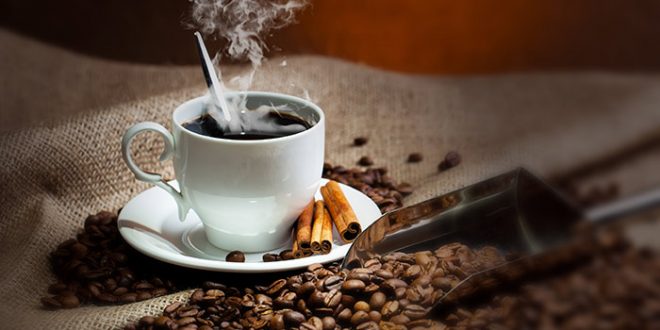A study by scientists from Clarkson University and the University of Georgia has found that combining cocoa and caffeine can help improve cognitive performance. Finally, a scientifically-proven reason to drink mocha lattes!
Researcher Ali Boolani recently completed a study that explores the powers of these two dark delights.
The assistant professor of physical therapy and physician assistant studies teamed up with colleagues at the University of Georgia to examine the “acute effects of brewed cocoa consumption on attention, motivation to perform cognitive work and feelings of anxiety, energy and fatigue.”
In a nearly year-long double-blind study, some lucky test subjects drank brewed cocoa, cocoa with caffeine, caffeine without cocoa, and a placebo with neither caffeine nor cocoa. Then they were asked to do tests to evaluate both cognitive tasks and mood.
“It was a really fun study,” Boolani says. “Cocoa increases cerebral blood flow, which increases cognition and attention. Caffeine alone can increase anxiety. This particular project found that cocoa lessens caffeine’s anxiety-producing effects — a good reason to drink mocha lattes!”
Before you envy the test subjects too much, bear in mind they had to work for the warm drinks. For example, they were asked to watch as letters flashed across a screen and note when an “X” appeared after an “A.” They also had to point out when odd numbers appeared sequentially, and they were required to do subtraction.
“The results of the tests are definitely promising and show that cocoa and caffeine are good choices for students and anyone else who needs to improve sustained attention,” says Boolani.
Here’s the best news for the rest of us: The Hershey Company sponsored the research, so customers logically could see some new or enhanced products on the market as a result.
Boolani and his colleagues — Jacob B. Lindheimer (War Related Illness and Injury Study Center – VA New Jersey Health Care System), Bryan D. Loy (Oregon Health & Science University), Stephen Crozier (The Hershey Company), and Patrick J. O’Connor (University of Georgia) — have published a paper about the results of their study in the journal BMC Nutrition.
“I’ll be doing some related and follow-up studies at Clarkson to look at differences in natural vs. synthetic caffeine, and other cocoa studies” Boolani adds. “I’m excited about them.”
Agencies/Canadajournal
 Canada Journal – News of the World Articles and videos to bring you the biggest Canadian news stories from across the country every day
Canada Journal – News of the World Articles and videos to bring you the biggest Canadian news stories from across the country every day



